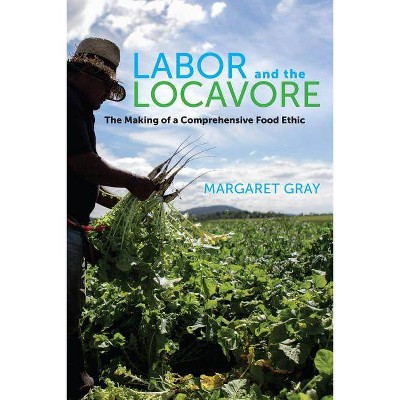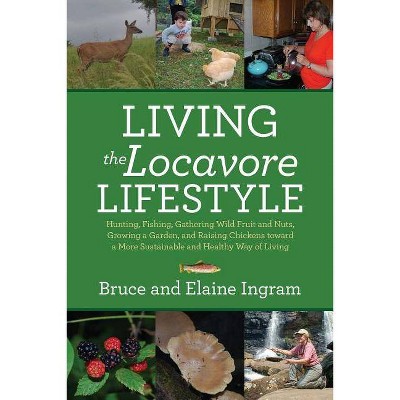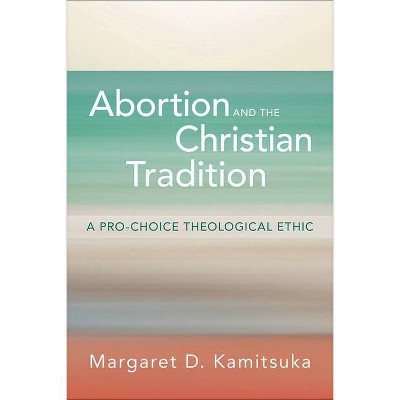Labor and the Locavore - by Margaret Gray (Paperback)

Similar Products
Products of same category from the store
AllProduct info
<p/><br></br><p><b> Book Synopsis </b></p></br></br>In the blizzard of attention around the virtues of local food production, food writers and activists place environmental protection, animal welfare, and saving small farms at the forefront of their attention. Yet amid this turn to wholesome and responsible food choices, the lives and working conditions of farmworkers are often an afterthought.<br /><br /><i>Labor and the Locavore</i> focuses on one of the most vibrant local food economies in the country, the Hudson Valley that supplies New York restaurants and farmers markets. Based on more than a decade's in-depth interviews with workers, farmers, and others, Gray's examination clearly shows how the currency of agrarian values serves to mask the labor concerns of an already hidden workforce. <br /><br />She also explores the historical roots of farmworkers' predicaments and examines the ethnic shift from Black to Latino workers. With an analysis that can be applied to local food concerns around the country, this book challenges the reader to consider how the mentality of the alternative food movements implies a comprehensive food ethic that addresses workers' concerns.<br /><br /><p/><br></br><p><b> From the Back Cover </b></p></br></br><i>Labor and the Locavore</i> is a timely and important antidote to much of today's popular food writing on eating local. Forthright and rigorous in its depiction of labor conditions on small farms in New York's Hudson Valley--the hub of the New York City local food system--Margaret Gray shows that labor abuses are not unique to industrial scale agriculture--or to California. --Julie Guthman, author of <i>Weighing In: Obesity, Food Justice, and the Limits of Capitalism</i> <p/> Small may be beautiful; when local it may be even better. But as Margaret Gray's beautifully written ethnography shows, the romance with the small and the local focuses on the conditions under which produce is grown while ignoring the conditions endured by the immigrant workers planting, picking, and tending the locally grown food that socially conscious consumers so desire. Focusing on that iconic symbol--the small, family-owned farm--this carefully researched, extensively documented book sheds new light on the ways in which immigration has transformed all corners of American life and in so doing has confronted farmers, consumers, and workers alike with difficult yet ultimately resolvable dilemmas. --Roger Waldinger, author of <i>How the Other Half Works: Immigration and the Social Organization of Labor</i><p/><br></br><p><b> Review Quotes </b></p></br></br><br>"<i>Labor and the Locavore </i>combines a wide-ranging historical perspective with the insights of contemporary fieldwork... Gray's tenacious commitment to examining the broad context of persistence and change in the injustices experienced by Northeast farmworkers offers an inspiring example to current and future scholars of food and agriculture." -- "Agricultural History" (9/1/2015 12:00:00 AM)<br><br>"[An] excellent book . . . broad and balanced."--Kia Sanger "Labor Studies Journal" (12/1/2014 12:00:00 AM)<br><br>"An important contribution to the discussion of alternatives to the conventional food system."--Fred Magdoff "Green Left Weekly" (8/8/2015 12:00:00 AM)<br><br>"An inspiring example to current and future scholars of food and agriculture."--C. Clare Hinrichs "Agricultural History" (6/1/2015 12:00:00 AM)<br><br>"Gray compiled a vivid picture of the living and working conditions of farmworkers in the Hudson Valley. . . . She reminds us that a progressive transformation of our global and local food systems cannot be achieved without securing justice for all food workers."--Tom Angotti "Progressive Planning" (2/1/2015 12:00:00 AM)<br><br>"Gray exposes the stark reality of farm labor conditions in the Hudson Valley's regional food economy . . . An important contribution to the literature on social justice in agriculture."--Christy Getz "New Labor Forum" (1/1/2015 12:00:00 AM)<br><br>"Gray has shifted our discussion of food ethics back to the humans who, by their hands, give us our daily bread."--Charles Thompson Jr., "Labor Studies in Working-Class History of the Americas" (5/1/2015 12:00:00 AM)<br><br>"Gray illuminates issues that even the most thoughtful among us have been turning a blind eye toward regarding the experience of many farm workers."--Suzanne Cope "Food, Culture, and Society" (6/1/2015 12:00:00 AM)<br><br>"Gray smartly argues that we must attend to the working conditions of individuals employed by farmers. . . . this book will be an eye-opening experience for anyone who cares about what they eat."--Abby Dubisar "Women, Food, and Ag Network" (6/1/2015 12:00:00 AM)<br><br>"Gripping reading . . . Gray's success in uncovering injustice within the locavore movement in the Hudson River Valley is irrefutable."--Eric Buzzetti "Perspectives on Politics" (9/1/2015 12:00:00 AM)<br><br>"Labor and the Locavore is a timely and important antidote to much of today's popular food writing. . . . I definitely recommend the book."--Julie Guthman "Progress in Human Geography" (10/1/2015 12:00:00 AM)<br><br>"Labor and the Locavore represents a powerful corrective to a major shortcoming in the food politics movement. . . . Gray's <br> work shines a bright light on precisely this side of the equation and highlights the need for a comprehensive food ethic that encompasses both environmental and social justice."--Noah Zerbe "Labour-Le Travail" (5/1/2015 12:00:00 AM)<br><br>As Margaret Gray discusses in her excellent book, 'Labor and the Locavore, ' we cannot achieve ethical consistency in producing food without paying attention to labor. . . . For food to be affordable, people -- all people -- must earn living wages; alternatively, good food must be subsidized. Both conditions would be even better.--Mark Bittman "New York Times, The Opinion Pages" (6/24/2014 12:00:00 AM)<br><br>By teasing out the complications of a single sliver of the 'alternative' food system, <i>Labor and the Locavore</i> points the way forward for foodies.-- "Dissent" (4/4/2014 12:00:00 AM)<br><br>Gray deftly crafts her arguments . . . This book is exceptionally researched and would make an excellent and challenging addition to <br>undergraduate courses on sustainability as well as graduate courses in public scholarship.--Russell C. Hedberg II "Agriculture and Human Values" (12/12/2014 12:00:00 AM)<br><br>Gray is a nuanced, thorough and evenhanded writer, which makes her argument all the more convincing.-- "NY 1" (1/17/2014 12:00:00 AM)<br><p/><br></br><p><b> About the Author </b></p></br></br>Margaret Gray is Associate Professor of Political Science at Adelphi University.
Price History
Cheapest price in the interval: 29.99 on October 27, 2021
Most expensive price in the interval: 29.99 on November 8, 2021
Price Archive shows prices from various stores, lets you see history and find the cheapest. There is no actual sale on the website. For all support, inquiry and suggestion messagescommunication@pricearchive.us




















